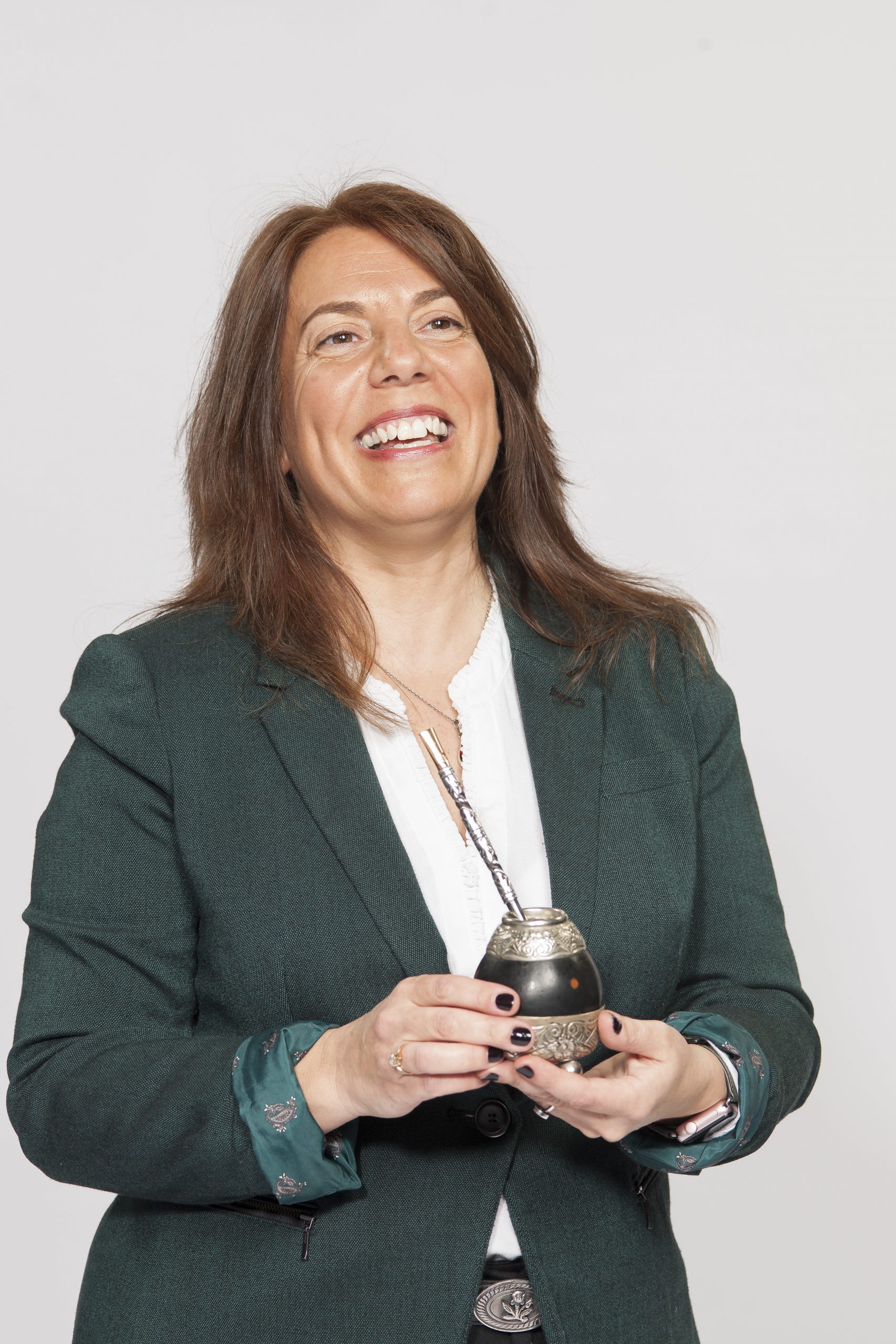
Expand Your World with a Master’s in Liberal and Interdisciplinary Studies
Julia Herbón wanted to step outside her comfort zone. An educator for 20 years, she was ready for the next step in her career. UNC Greensboro’s online Master of Arts in Liberal and Interdisciplinary Studies (MLIS) was the perfect fit for her complicated schedule and professional goals.
“I wanted a program that would challenge me intellectually, culturally, and would help me to perhaps start a new career or veer to explore a different area, always connected to the field of education,” she says.
‘I’m exploring and trying to see what I can do now that I have a master’s.’
An ESL instructor at Central Carolina Community College in Siler City, NC, Herbón says the fully online MLIS degree offered flexibility and has opened up career options in teaching as well as outside the classroom, such as training teachers or administrative work.
“Now this is the bit of self-discovery,” she says. “There’s a transition period whenever you get your degree, so I’m exploring. There are so many things that you can do with this master’s.”
With MLIS, students use real-world projects to dig deeper into the humanities, sciences, and arts. Students can customize their own program, and use their own experiences and new skills to solve real problems.
‘The MLIS program has provided the right tools.’
MLIS helped Herbón improve professional skills, such as writing. A native of Argentina, she is proud of her growth in a second language. Through academic papers, research, and a family story project, she sees progress that will impact future grant initiatives and presentations for her job significantly.
“After attending the MLIS program, my proposals will be thoroughly researched in order to produce a creative, unique, and fundable idea,” she says. “Gaining cultural awareness and so much knowledge of our social and economic realities will motivate me to conduct a more evidence-based narrative that would support my claims and my project goals.”
‘The courses stimulated my intellectual curiosity and empathy.’
Herbón enjoyed the MLIS program’s stimulating courses where she learned about scientific discoveries, global movements, and historical facts through readings, personal research, and discussions with her professors and peers.
For her Crossing Borders: Literature of Migration course project, she organized an event to create cultural awareness in the community, featuring immigrants’ stories and music, and plans to create a similar event in the future.
The MLIS program requires a final portfolio project, a collection of reflections on the most impactful courses. Herbón’s portfolio included a project for Contemporary Media Literacies, illustrating how mixed media, such as audio, textbooks, and computer software, motivate students to learn a second language and expose them to everyday situations.
The course inspired her to update a curriculum she created six years ago, incorporating Contemporary Media Literacies for second language acquisition.
“The ultimate goal for the creation of this curriculum is for adult ESOL students to access the type of English they need for success in their roles as parents, employees, consumers, and lifelong learners,” she says.